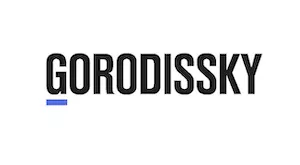Legal framework
Russia is a signatory to almost all the international treaties governing IP matters. The international conventions and treaties are regarded as integral parts of the Russian legal system. The Constitution of the Russian Federation provides that if an international treaty establishes rules that differ from those stipulated by national law, the treaty's rules will apply.
Russia is a party to the following international treaties relevant to counterfeiting:
- the Paris Convention for the Protection of Industrial Property;
- the Agreement on Trade-Related Aspects of Intellectual Property Rights;
- the Madrid Agreement Concerning the International Registration of Marks and the Protocol Relating to that Agreement;
- the Customs Code of the Eurasian Economic Union; and
- the Universal Postal Convention.
The following national laws apply to counterfeiting:
- the Civil Code;
- the Code on Administrative Offences;
- the Criminal Code;
- the Law on Customs Regulation in the Russian Federation (3 August 2018); and
- the Law on Protection of Competition (26 July 2006).
Border measures
Border measures against counterfeit goods are available in Russia based on:
- the Customs Code of the Eurasian Economic Union;
- the Law on Customs Regulation;
- the Code on Administrative Offences; and
- the Civil Code and the Criminal Code.
The Customs Code of the Eurasian Economic Union contains general provisions on customs control and grants Customs some major powers. The Law on Customs Regulation provides more in-depth country-specific regulations and powers to the Russian Customs, while the Code on Administrative Offences and the Criminal Code indicate specific remedies for trademark infringements. In particular, the Law on Customs Regulation sets out administrative procedures for detention of counterfeit goods.
A trademark owner may apply for its trademark to be included in the Customs Register of Intellectual Property. When applying for inclusion, the trademark owner must confirm its trademark rights and provide information about licensees, authorised manufacturers and importers, features of genuine and counterfeit goods, facts of infringements and other relevant data.
All customs authorities are obliged to check the Customs Register of Intellectual Property regularly. There is no official fee for adding a trademark to the register. However, adding a trademark makes the rights holder responsible (if it supports the customs claims) for any property damage that might be caused to the declarant, owner or recipient of goods as a result of their suspension, if a court rules that the goods are not counterfeit.
The maximum term of recordal of a trademark in the Customs Register is three years, with the possibility of renewal for further three-year periods. The initial term of customs recordal depends on the legal protection of the trademark and cannot exceed the same.
In case information stated in the customs application has been changed (eg, name of the rights holder, its address and new licensees), the rights holder must inform Customs about such changes within five business days (the documents confirming the changes can be submitted later). Otherwise, the trademark is subject to removal from the Customs Register. Assignment of the trademark is also grounds for removal of the trademark from the register.
To view the article in full please click here.
This article first appeared in Anti-counterfeiting: A Global Guide 2019, a supplement to World Trademark Review, published by Globe Business Media Group - IP Division. To view the guide in full, please go to www.WorldTrademarkReview.com.
The content of this article is intended to provide a general guide to the subject matter. Specialist advice should be sought about your specific circumstances.


